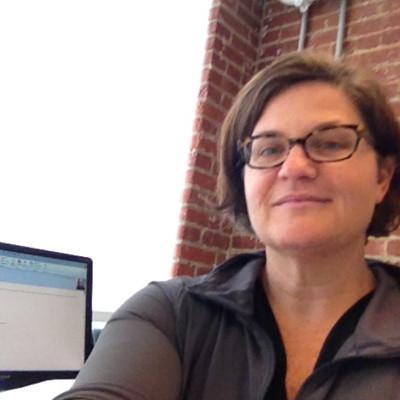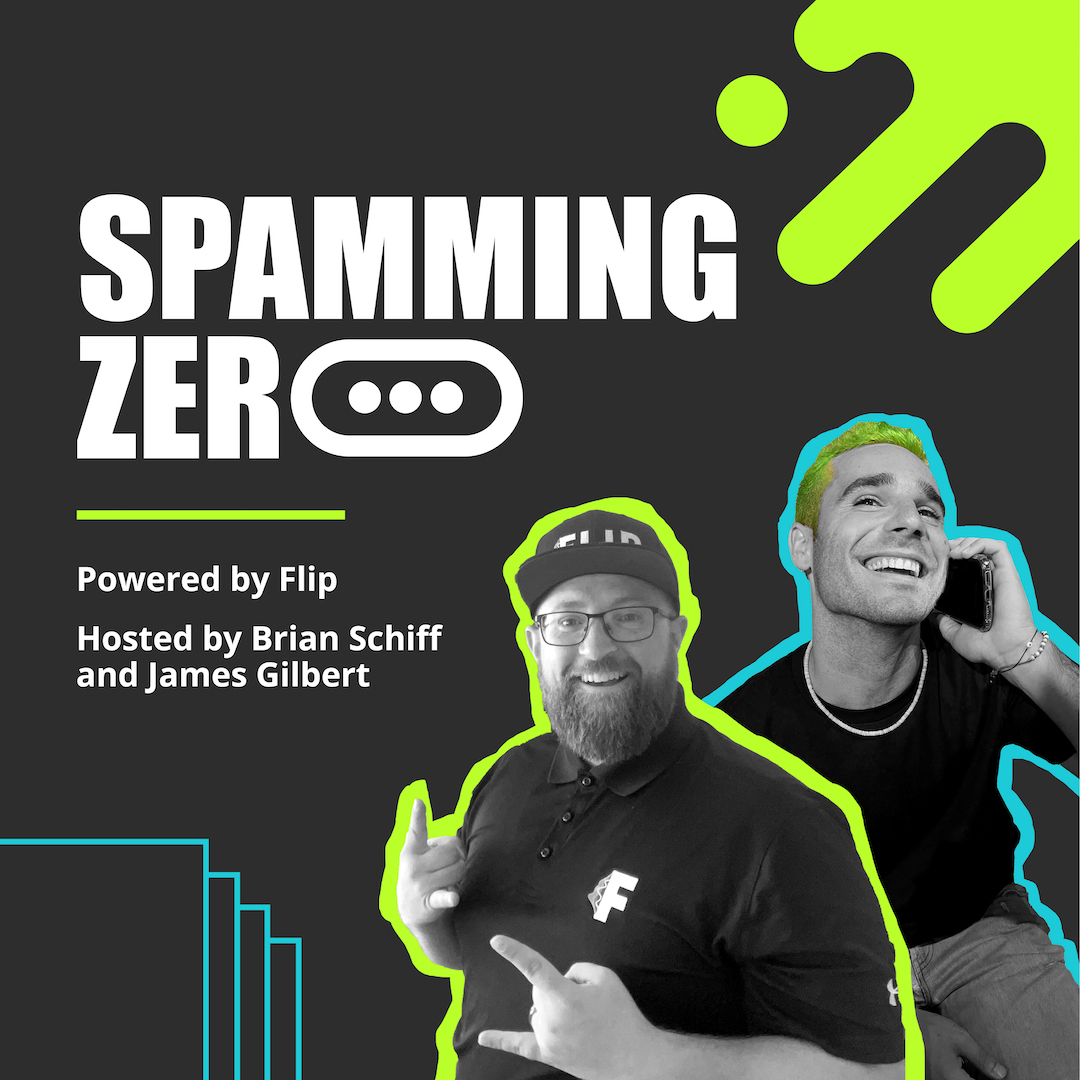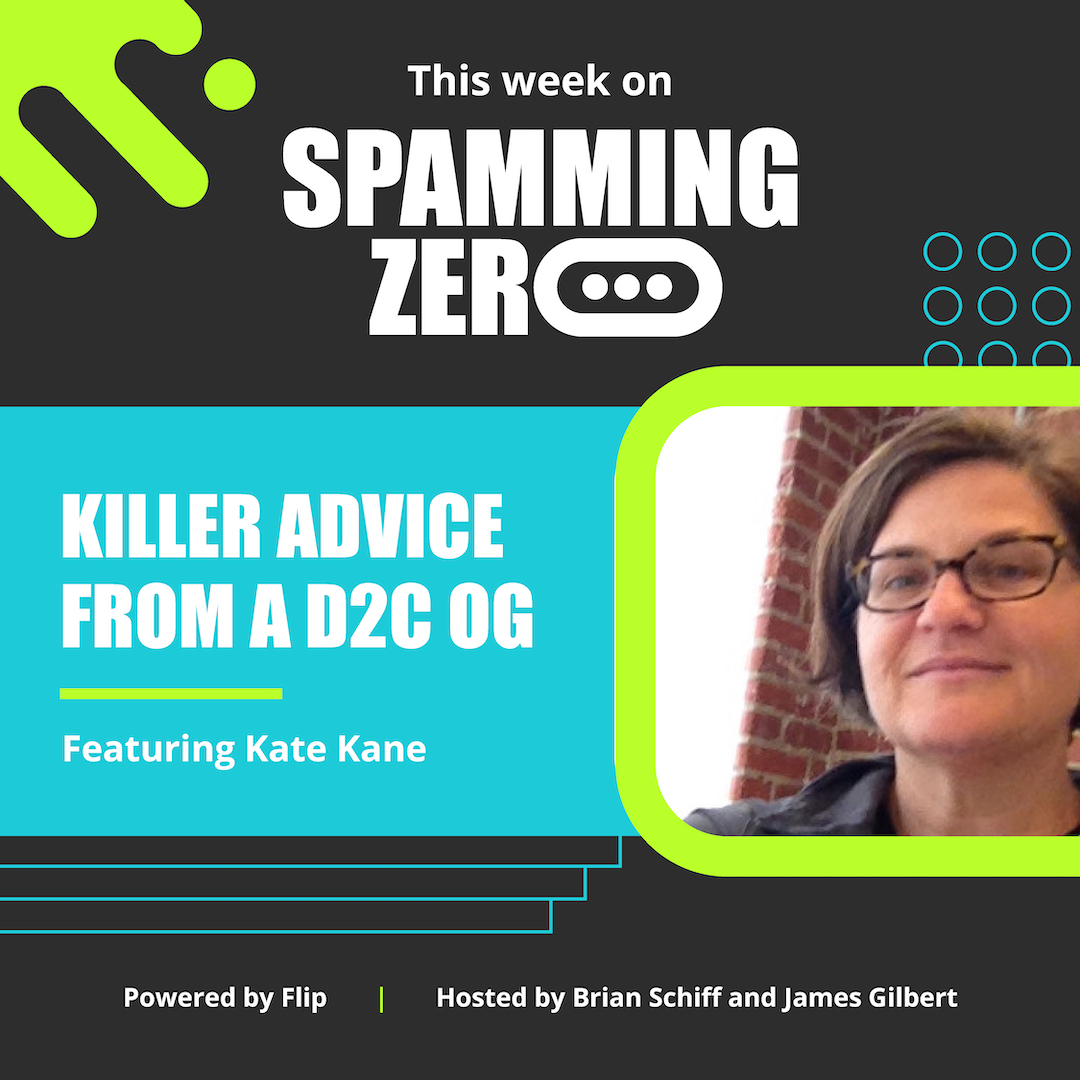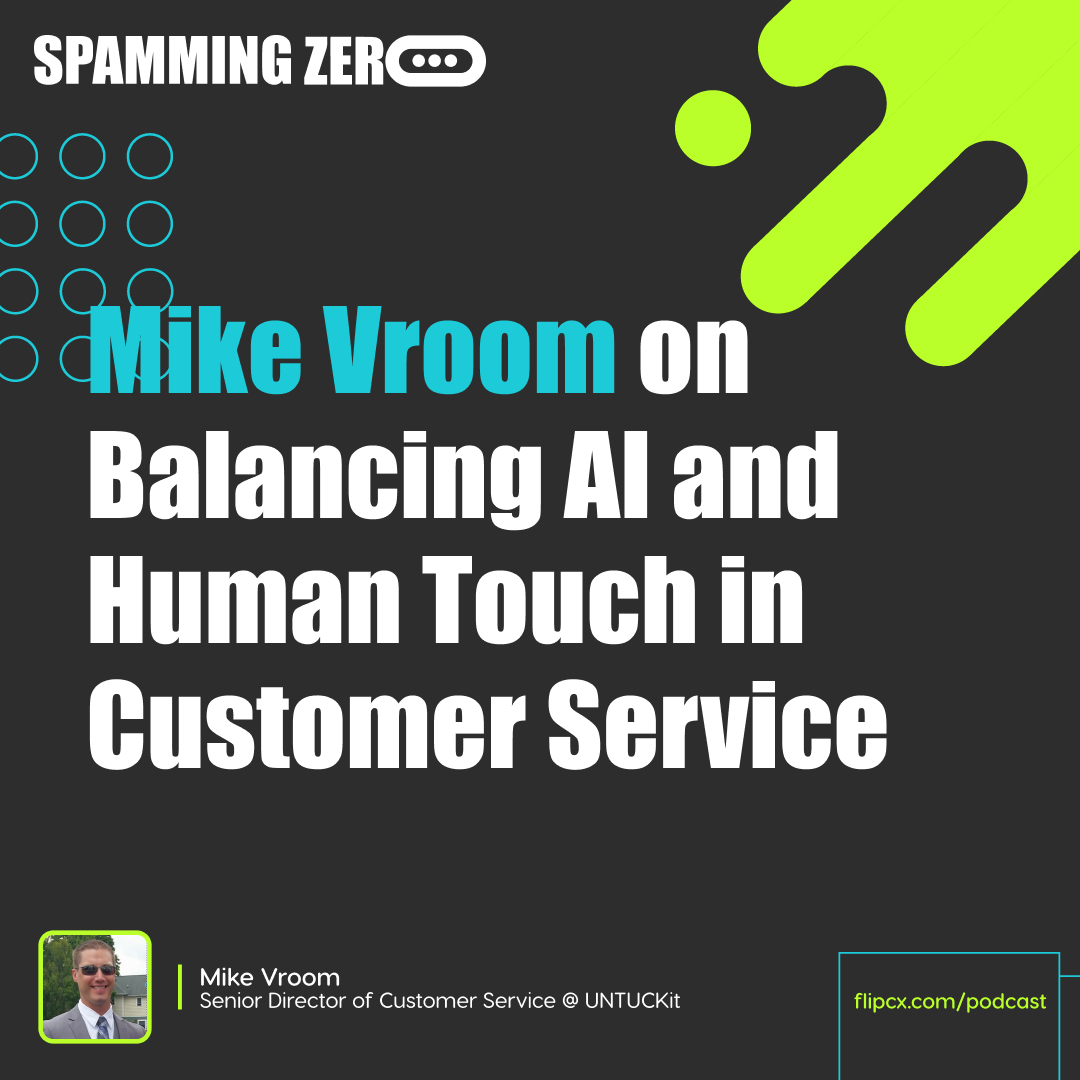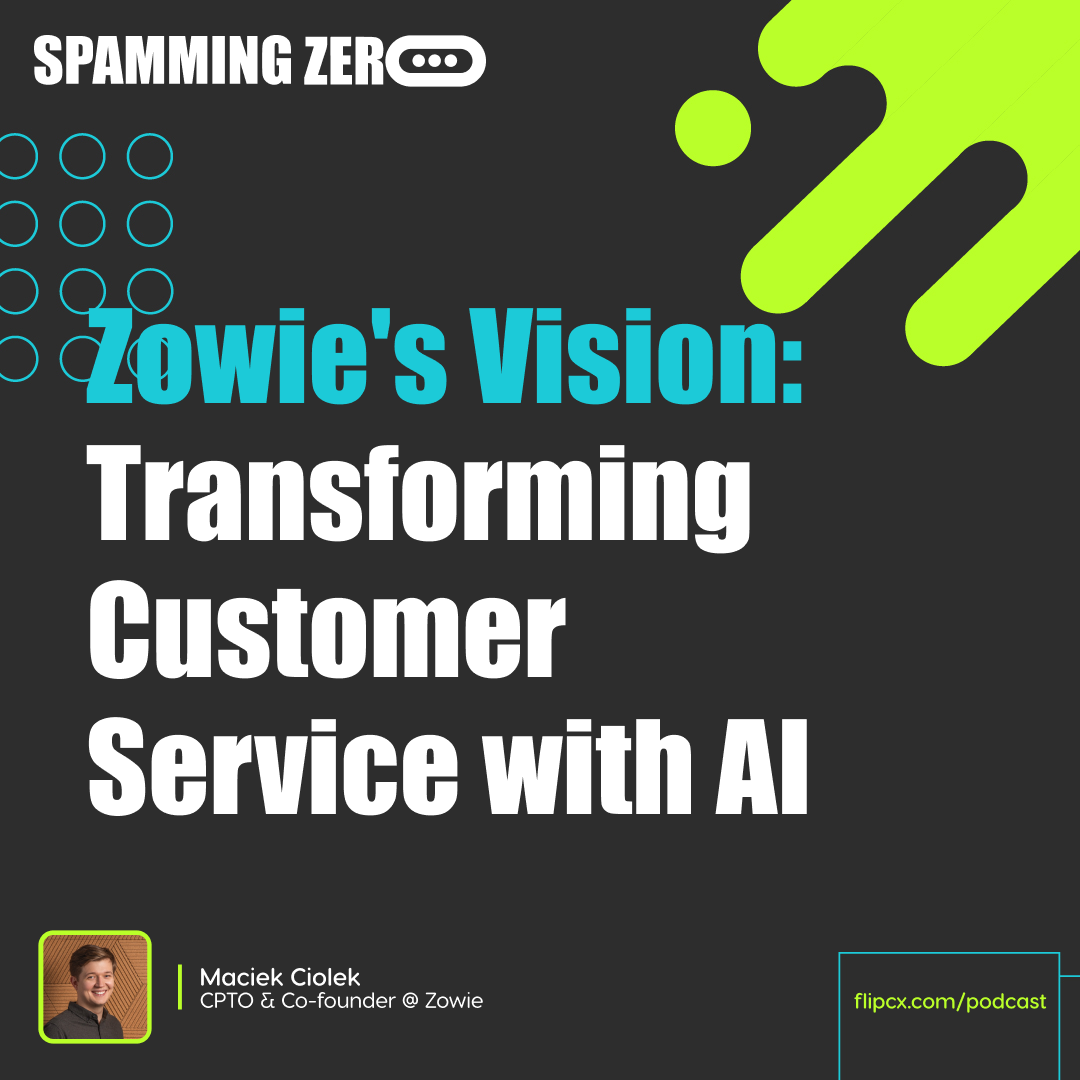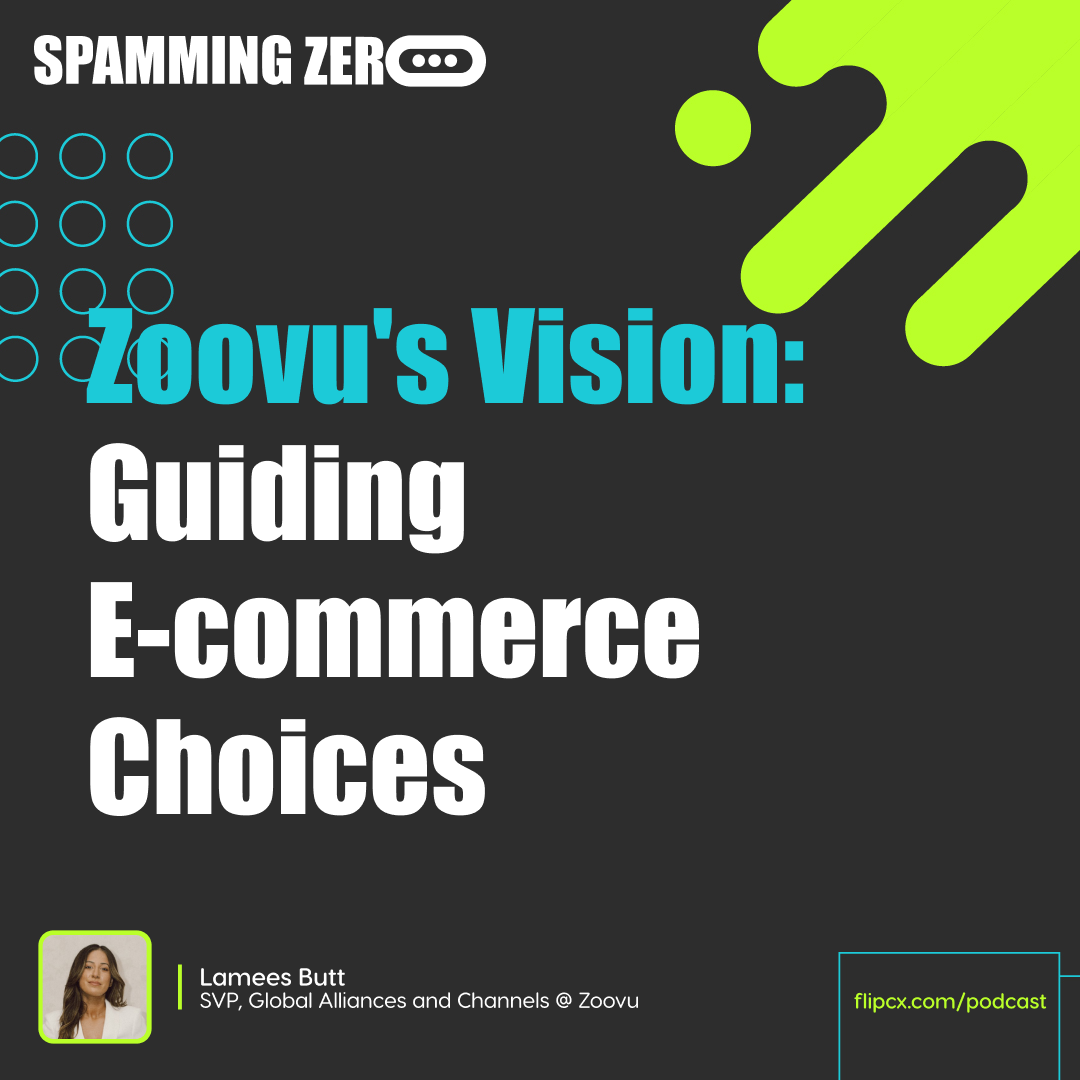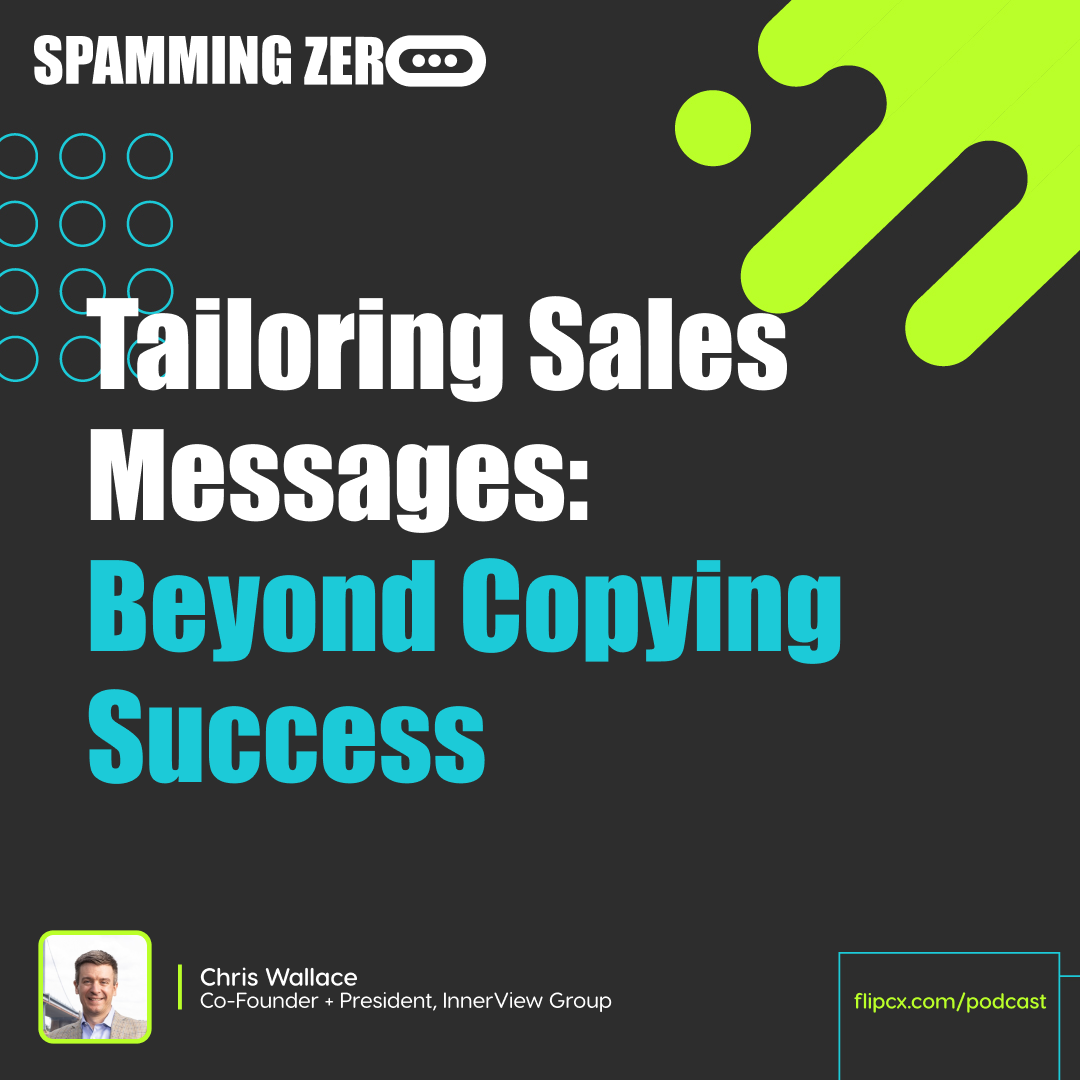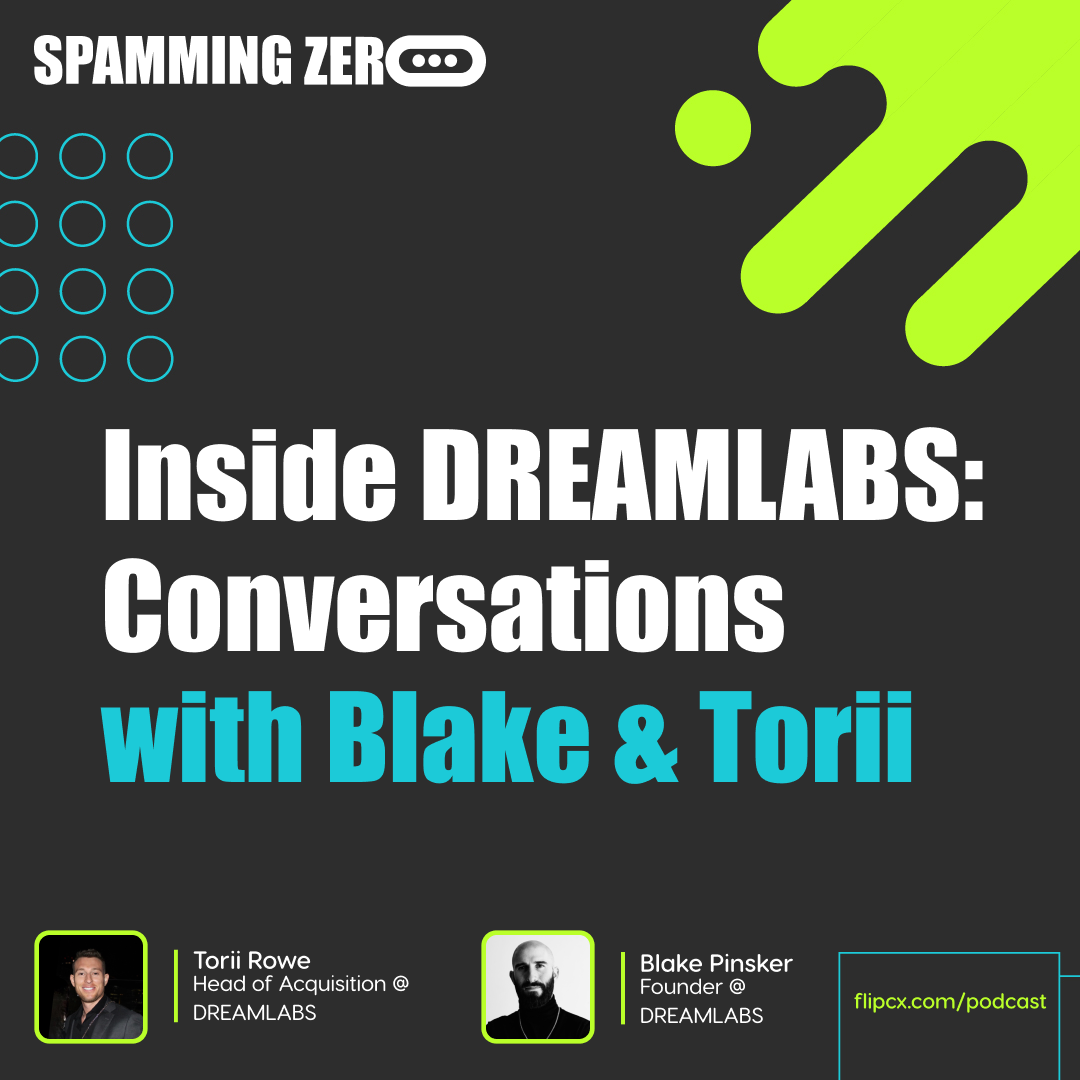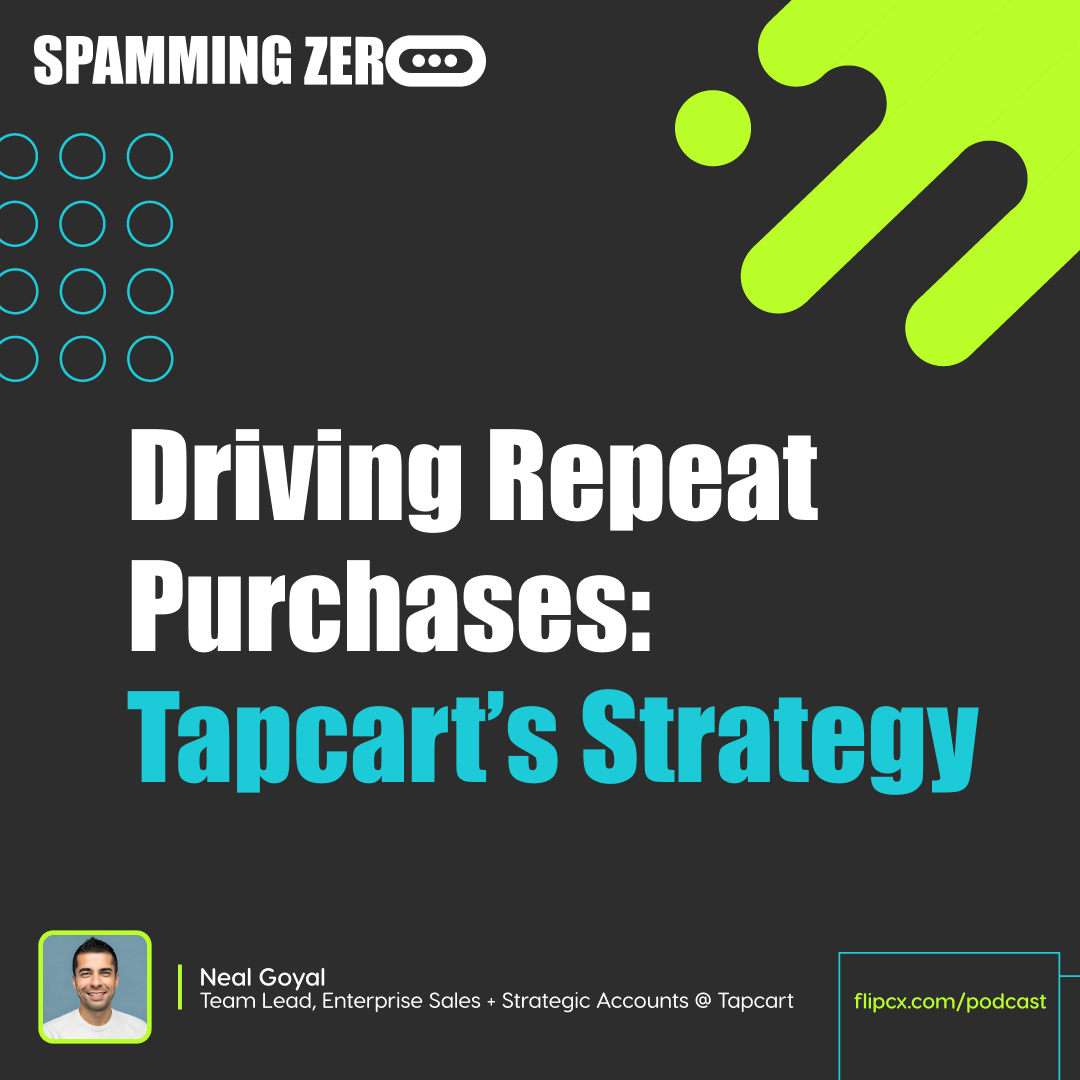Episode 34: Killer Advice From Hunt a Killer's Kate Kane (the D2C OG)
- 0.5
- 1
- 1.25
- 1.5
- 1.75
- 2
James: Hey, to all of our listeners out there, this month's sponsor of Spamming Zero is HiOperator. We had Liz Tsai, who is their CEO, on our podcast just a few weeks ago. If you haven't checked that out, make sure you do that. It's amazing. Great episode. We talk about customer service agents, we talk about lifetime value, talk about a lot. Who's HiOperator? I'm going to read directly from the website that HiOperator has. This is a beautiful statement. I love what Liz says here. Customer service is a core pillar of most businesses. It's also one of the hardest parts of the business to scale. Hiring is time consuming. Training is time consuming, and volume varies by season, and documentation is constantly in flux. All true. Agree a hundred percent. They started HiOperator to make delivering customer service easy. Our mission is to help companies deliver excellent, scalable customer service effortlessly. Our clients can focus on their products and services and their customers get a great experience when they need help. HiOperator provides a complete customer service as a service solution. Through the power of HiOperators' human plus AI technology, client conversations are handled faster and more accurately. The end result, they deliver amazing customer service, making companies and their customers happy. That's why they exist. That came directly from Liz. Here's some other fundamental stuff that I really like that they do, some value add here, right? Train us once, we handle all the recruiting, hiring, and training moving forward. Never have to deal with another classroom, retaining or headcount headaches. They say this, send us conversations, send us tickets. We pull the tickets automatically from your preferred CRM and then you have full control over how and when those tickets are used. Another one, paper resolution. This is something we do at Flip as well, charge for the conversation that we actually solve. No onboarding fees, no hourly rates. Pay for what you use. This is HiOperator and they're this month's sponsor. I'm James.
Brian: And I'm Brian.
James: And this is Spamming Zero. Welcome to the show everybody. We have Kate Kane. Kate, welcome.
Kate Kane: Thank you. Happy to be here.
James: You know, Kate, you have one of the most fascinating careers that I've ever looked at on paper and you explained a little bit of it before we had chatted, but I'd love for you to talk to the audience about some of your experience, especially when it comes to direct- to- consumer brands and what you've done for them.
Kate Kane: Well, I started off working for Ralph Lauren. I went to school and studied clothing and textiles, and I was down in North Carolina and lucky me, that Polo was moving their distribution center from New Jersey to Greensboro in my backyard. I went over, I found somebody worked there and they were like, " We don't have any jobs open. The only job open we have is working in the onsite trailer." And I was like, " What do I have to do?" They were like, " Sit in the trailer. If anybody knocks on the door, make sure that they have a hard hat. Then if they want to pitch something like their conveyors or their lunch program, take their information and let them be on their merry way." And I was like, " I'll take it. When do I start?" After I graduated, traveled around Europe for two months and came home and started in the on-site trailer and basically moved my way up until the building was finished. But my second job, I was the main receptionist. I got to answer the phone, which I loved. " Hello Polo. Welcome to Ralph Lauren." I got to talk to everybody, which was great. Then I moved through that to become a customer service rep for our wholesale businesses. I worked with Macy's and with Bloomingdale's and made sure that when they placed their orders, they got in the system and we actually shipped them what they wanted. That was kind of how I started. It was one of those things where I was like, " I love this brand and I have to work here." And I figured it out. It was good.
James: Such a fascinating way to enter an industry that is totally different. You also had a very unique time in which you were in apparel and these D2C companies. And one thing that I found really interesting, I was pulling this stat earlier, and that's as of today, 77% of apparel and accessory companies now have an e- com component to them. Now you got to see the boom of the e- com world and what happened with those brands. Talk to us a little bit about what that was like and what that was like for your teams that you were helping to manage. Because there's a big difference between supporting something that is in store, regional, very focused on people that are coming in and foot traffic versus something that's online and all has to be done digitally.
Kate Kane: One of the biggest things, especially at Polo was we had to train people what the product looked like and then how do you explain that to someone either through chat or through the phone when they can't actually see it? That a training ended up being a big part of it. Then the other part was people... When I think about Under Armour, we had a really tiny website that one of the guys built and because we weren't sure if that was going to be the way or not, so we had four guys that worked on direct- to- consumer, and this was in 2008, so it was just barely there. And when we really started to build the website and the product, everybody wanted what the athletes wore because Under Armour started on the field. If Ray Lewis was walking around in a pair of shorts and he would be like, " How can I buy these? Where are they?" And we didn't sell the same things that we gave to Ray Lewis to the main public. There was that constant sort of training and how do you find the right piece that matches what Ray's wearing? it was definitely training.
James: How much easier did that make it on your team though that some of the marketing and the growth was driven by more of an influencer and really the sports industry? How much easier does that make life for you and your team?
Kate Kane: We could hire people much easier. Everybody wanted to work in the contact center because they might get to talk to Kevin or one of his friends or one of these football players. Clearly this is not any rocket news, but there is a massive following behind sport. And if you can associate yourself with it, people are much prouder to work in the contact center and answer questions if it's associated with something bigger than themselves. And I mean, the team I had at Under Armour was outstanding. I mean, they were all college graduates or played college athletics or they were just wildly dedicated people. I've never been with a more intense group of people that just wanted to make things great. Yeah, it definitely made recruiting easier. And we also, at Under Armour, we clearly started off with just phone. That was the only way you could join the contact centers. You had to talk on the phone and then people would graduate and move to chat because that was the second wave when we turned chat on. Then the third wave was when we did social media. If you were chosen to answer Facebook requests or Instagram or Twitter, you were the top gun in the contact center.
James: I'm a big sports fan as you can see. And I always find it very fascinating how... I'm also a marketer, so I also find it fascinating how to create fandom. There are ways in which you do that, right? And when you use sports as the analogy behind it, the way that they do it is they create this passion and they double down on the passion. Then these apparel brands like Under Armour, Nike, the ones that are creating the jerseys, really get to have their companies grow from that. And I always find it really fascinating to hear people's stakes, because you said you're big sports fan too. You love football, right?
Kate Kane: Yeah.
James: Who's your team right now?
Kate Kane: Well, it was tough because Ravens lost, but I do love Cincinnati, so.
James: Are you allowed to say that?
Kate Kane: Well, yes. Here I am. There's no one around me. Yes, my mom grew up in Cincinnati, so you got to love the hometown team.
James: I totally agree with you. I'm from Utah and we've never had any NFL team in the history of our state. All we've ever had is the Utah Jazz. There's just so many people that are obsessed with the Utah Jazz here. And it reminds me when I lived out in Georgia for a little while and seeing the fandom that would happen with Georgia college football and it brought me a little bit of nostalgia. Nothing can be, I think more relevant to a brand than trying to create fans. And sports does it really well. I think other brands that do it really, really well are I think of Disney. I think of Amazon. Amazon's doing a pretty good job at this creating fans. Not in the sense of where I would wear Amazon apparel necessarily, but still the idea of fandom kind of became this big booming thing. During your time in going from career with Polo then to Ralph Lauren, then to Under Armour, how do you think other direct- to- consumer brands, whether they're in apparel or not, can look at creating fans with their own customers and with their own customer experience?
Kate Kane: Brands have to define who they are and they have to say, " This is what we are. We're not going to appeal to every single person, but we want people that love what we have and love what we bring." The company that I'm at now, at Hunt A Killer, it's a murder mystery game where it's a story that's been created, but what we want are passionate detectives, people that listen to true crime, that want to understand, that want to dive in and figure out why someone wrote this funny code on a matchbook. To get people super engaged, so when we talk about that internally, it's like, okay, who are our customers? Okay, they're these wild detective people that love these podcasts and play these games. And so when we talk with our customers, let's call them detectives. Instead of being customers, they're our detectives. When we correspond-
James: I love that.
Kate Kane: ...with them, we say, " Great job, detective. Wow, you've really solved this." We use those sort of terms to bring them in to what we do every day. I think you have to stand for something. At Under Armour it was we make you great when you go play your sport, whatever it is. If it's walk into the mailbox, you're going to look great and feel great. And here, if you're going to buy our game, you're going to play it and you're going to figure it out and you are going to solve the mystery and it's going to be fun.
James: I've been telling my wife about your games for a little bit now, and I think we're going to finally make the plunge and buy some.
Kate Kane: Do it.
James: It's so interesting because with the age of, I would say however we want to coin this, but more content consumption, all the stuff that's on Netflix and being able to stream, all the stuff that's on YouTube, being able to stream those things, the podcasts that exists today, the content consumption that exists in today's world, believe it or not, some of the most popular stuff is actually around the mystery and the discovery of these serial killers. There are podcasts that are doing so well about this.
Kate Kane: Well, my family's totally into it. We've got Deborah Norville basically nonstop playing. All my kids have seen the Dahmer thing,
James: Which was creepy as heck. Holy smokes.
Kate Kane: I couldn't watch it. It is-
James: We had to shut it off too. It was a little too much for me and my wife.
Kate Kane: That's a whole big subculture. I mean, during the pandemic our business went nuts because everybody was home. What are you going to do? Well, let's play a game. Let's try this in between... What was that other... Tiger King, was it?
James: Oh yeah, Tiger King.
Kate Kane: That was a train wreck.
James: That was wild.
Kate Kane: I mean, you couldn't stop watching it. I walked by and stood there for about 45 minutes watching it.
James: But it's interesting that there are times in history where things become more accessible to people. And I think about when the computer came out, I think about when video games came out, I think about when we landed on the moon, I think about these unique moments of history that changed the course of time and changed how we as consumers and people in the world operate and do things. And I think we're seeing one of those moments happen right now with AI and automation. And I think that there's so many people out there that... There's not really a middle ground. There's usually you're either really for it or you're like, " Nope, I'm not going to do it, because it takes away from the human." And I'm curious, knowing that you have a ton of experience with many, many different brands, what's your take on this AI revolution that's happening right now?
Kate Kane: Part of it is absolutely fantastic and it will break through the first press one, press two, that whole thing because it can get some of the basic information first. It will reduce the amount of time someone has to do the mundane stuff where there's silence on the phone and you're looking stuff up. If that information can populate, that'll make... You can actually connect with the customer much better that because it's going to take you right to where you need to be and it's not going to waste their time or your time. Your handle time isn't going to go up. And I think after having a phone conversation, customers are happier. Having a back and forth conversation with a human being is so much better than chat and email. I'm for it.
James: I am too.
Kate Kane: I'm skeptical that it's going to work out as easy as everyone says, but I can be a doubting Thomas, but I think it will make things better.
James: One thing we do not love to do on this podcast is talk about Flip at all because that's just not what we love to do. But if we take the Flip hat off for a second and we just think about how just voice automation in itself has really activated its way into our day- to- day lives. It's actually mind blowing when you really think about it. Right now, a recent statistic I saw is there are now eight devices on average that have voice technology, meaning your Echos, your Amazon Alexas, your Echos, your Google Voices, whatever it might be, there's at least eight devices in every home right now. And looking at that and then seeing the projection of how people are searching through voice and it way outperforms text, going to Google and typing something in, you say on your phone, " Hey, tell me this. Tell me the restaurant that's closest to me." It's how people search. And it's so accessible. And one thing that I have just been trying to drive home a ton lately because I got excited about coming to Flip for a lot of different reasons, but the big one was I had a situation growing up where I lost my eyesight and couldn't see for quite a while of my life.
Kate Kane: My gosh.
James: And voice technology was just making its way into the world. And I had this big computer that sat on my lap and it weighed a lot and it would read my typing back to me and tell me when I was scrolling through a webpage and things like that and what it was saying, and it was really robotic. The advances that we have made in today's world, and I've been kind of griping this from the rooftops on how important it is. We just had an episode with a gentleman who is a quadriplegic and he 100% relies on voice for everything that he does in his home. Light bulbs, you name it. And he got on and him and I were talking about there's a whole part of this for AI that is also about accessibility. And when you break down the numbers there, it's quite mind blowing because there are 2. 2 billion people in the world today just with the disability of vision alone.
Kate Kane: Wow.
James: 2. 2 billion in the world. And that number's going to keep increasing and it's going to keep getting bigger and bigger and bigger the more that we're in front of screens, the more that we have content consumption. And it's fascinating to me how brands are looking at automation and they're looking at AI as sometimes a negative, but we also have to realize there's a massive amount of the population that actually has to rely on this AI. And by not having it, you're actually in a lot of ways, you're going to lose business. One out of every four people that visit your website have a disability where you actually can't serve them.
Kate Kane: The other thing with AI, not even a technical disability, but when my dad got old, like we all are going to get old, we got him an Alexa because he always wanted to know what the weather was and he also couldn't see very well. He had macular degeneration. We got him Alexa just so that he could know what the temperature was because he loved to play golf and then he couldn't play golf. He was asking Alexa what the temperature was. Then we were sitting around and I was like, " You could ask Alexa to tell you a joke or read you a story or play calming music before you go to sleep." It could pray with him. The things when he was sitting in his little room at a nursing home, he had someone to talk to that was talking back that he controlled. I mean, not even just as something to do.
James: I tell you what, we have only scratched the surface. If you can imagine. We now leverage Alexa and Siri and Google Voice and all these things. We turn our thermostats on it with it. We turn our light bulbs on with it. Some people turn their ovens on with it when they're coming home from the grocery store, preheat the oven. We do all these things as consumers and customers of voice automation. And this is what really excites me about working for Flip is we have an opportunity to take this same type of consumption that has happened in the consumer world and have it help businesses be more efficient. And it's not really made its way there yet. As a matter of fact, we have been doing this campaign that we just recently launched called IVR Madness and one IVR, I just want to make sure this is crystal clear to everybody listening, an IVR is not accessible to those that I just mentioned, right? It's a problem. You need to think about that. And so we created this campaign called IVR Madness and we're people's take on how they feel about an IVR and experiences that they've had with an IVR. And you mentioned one just right before we got on this and started recording about the idea of pressing one and pressing two. Those days are going to be over. And now having a real conversation, even if it is with a human- like AI, it's still something that people want more than ever. And you and I were talking about the generational gap that happens here because your kids and mine don't want to call and don't want to use the phone. And it makes me wonder if these things existed where it was more of a Siri or an Alexa or a Google Voice, they would.
Kate Kane: Well, I was going to say, if my brother calls my son, " I'm busy," he doesn't want to talk to him on the phone. But if I say, " What's 82 times seven?" " Hey Siri, what's 82 times seven?" And that's how they find out stuff. We'll have be having dinner, we'll ask some question and if someone's like inaudible and they'll get the answer. They don't have a problem doing that, they just don't want to talk.
James: There's so much untapped potential here too. I mean, if you think about it, the game of waiting on hold and listening to music instead of actually, why don't you actually engage with the people that you have on the phone? You know it's still going to be the same amount of hold time. Do something with that time, play a game with them and then make the game interactive so that you can get information from them to make their experience even better in the future, right?
Kate Kane: It's like Zappas. Press one if you want to hear the joke of the day, which every time I called there I would hear the joke of the day before I found out where my shoes were because I thought that was hilarious.
James: It is. And that's the untapped potential from a brand perspective. That's how we now move from a consumption world into creating fans of these brands. You have had an incredible career, no doubt about it. You've been in some amazing brands, you've done some incredible things. I'd love for you to tell the audience what are the one or two things that you are just super proud of across that career?
Kate Kane: First and foremost, just the opportunity to be a part of brands that are legends. I'm very fortunate that I made my way in and was able to stay and have some great experiences.
James: Tell me one or two things that you want to hold your hat on and you're like, " You know what? This is something I'm really proud of."
Kate Kane: This was something that happened at Under Armour. I don't remember what year it was, but it was December 22nd and the holiday was going to fall over a weekend. And we did not know that there was a built- in calendar between the website and the distribution center. All the orders that were in place two days before Christmas got bunked to ship after Christmas. I don't remember the exact number, but it was like 40, 000 orders. It was a ton. It's the 22nd of December and we're like, " Holy shit, we got to get all these out." We called in the warehouse, we were like, " Don't print any of those orders, we're going to get them to the customer before." We brought in the IT team and we were like, " How can we do this? All hands on deck." I remember the Ravens were playing at home, so people came in from the Ravens game on a-
James: Wow, that's serious stuff-
Kate Kane: Yeah, came in-
James: ...where you live.
Kate Kane: ... andwe had to basically recreate all the orders and ship them out. Some customers got double orders and we didn't care. We were like, " Kevin, we have to do this." Brought everybody in. We basically worked through the night to recreate all the orders, to get everything out and then to document the orders that we doubled. And so we called it the UA fumble because we were like, "We got to call this something" so we remember when people call in and they say, " I got two orders" or, " I got this," we know, so all the orders said UA fumble in it. It was hilarious. But the whole team came together, we figured out what to do and we made people's Christmas. We could have totally blown the whole thing, but to be able to rally and get the people necessary to make it happen and still have a good time doing it, we made it. And that's one of the things that we, not that we saved Christmas, but we saved some serious upset people and that was a total group effort. That's one thing I'm really proud of. Then I have one other thing. I don't know if you've ever been to Chuck E. Cheese?
James: Oh yeah.
Kate Kane: Okay. The machine where, like the air thing and it blows all the tickets, whatever you call that thing. I used to have all these contests during the holidays so that people could win games. Not games, they'd win money or whatever. And I was like, " Let's get a money booth and let's get some money and put it in there and you'll earn minutes or seconds in the money booth." We looked high and low for a money booth and I'm like, " Let's just build one." We built our own money booth. My guys-
James: Oh, this is awesome.
Kate Kane: ...in operations. He was like, " My friend, he can do this." And he was like, " The only thing we need is the fan." And I'm like, " Okay." We bought two of those big fans. If your basement floods and you have to dry things out, we bought one of those.
James: Industrial ones that are so loud.
Kate Kane: And so we bought one of those and once it was finished, we had to have someone holding the fan because we couldn't figure out how to attach it. Someone was holding the fan, someone was holding the door. And I grabbed my counterpart and I was like, " Let's go to the bank." We went to the bank, we got$ 5, 000 in cash, in ones, five, 10s, and 20s, and we threw a thousand dollars in it at a time and let people catch money. It was hysterical. I mean, it was so fun but that-
James: Did you get like video of this?
Kate Kane: I have one video and a few pictures, but it was-
James: You got to send us some pictures of this because we got to put this in the thread of the podcast for sure.
Kate Kane: It was insane. I called over two bosses up and I'm like, " Hey, we're going to turn the money booth on. Do you want to come over?" They were cracking up. Nobody could believe that... They were like, " Where'd you get it?" And I'm like, " We couldn't find one so we built it." I don't know where it is right now, but it's probably recycled somewhere. But that was a freaking ball.
James: You're giving me really good ideas to do at events, money booths.
Kate Kane: And then the first people that went in were like, " Oh man." Then by the 10th one, people were kicking the corner and using their elbow, they watched and figured out the best way to get the money. The other thing we did is we had a contest, and I don't remember what the rules around it, but people, I asked people to look under their chair to see if they noticed anything. And on random chairs we taped$ 20 bills and whoever got a call from Arizona got their name put up on the board and we tried to just make it fun and we did have a good time.
James: Two things. Number one, what's your advice to folks that are managing people in a contact center and what's your advice to them on how to make it engaging and fun like you've done? Then number two, what's your advice on leaders that need to rally the troops during a crisis?
Kate Kane: Whatever brand you're representing or whatever you're doing, you have to have a passion for it, you have to care. Number one, you have to care, you have to be in it. And to reiterate that to your team is for the leader to show the team that they also care and they'll take a customer call or they'll respond to an email or they'll figure out why the Doritos always get stuck in the machine when you're on your break and you can't eat your food. You got to care. And that will go a very, very long way. And you have to remain calm. You have to say, " Okay, this is where we are. This is awful." But I'll quote what this guy used to inaudible he'd always say, " Begin with the end in mind," which is true. Okay, this is where we got to get and it's going to be an ugly road, but if we're all headed that direction, it's going to be much easier. To be calm and to be clear and to hear what people have to say, but pick a path and go.
James: I think so oftentimes when people think about these situations, crisis situations are making it fun, I oftentimes think people overthink it. They think it's going to be this one trick pony kind of thing. They're going to get this groundbreaking idea and then that's going to fix everything. And it always comes back to the fundamentals or the basics and almost with everything, if you think about it.
Kate Kane: Yes. Everything in life, when things start to spin out of control, it's like, whoa, let's get back to step one. What do we have to do here? We got to make some dinner, let's figure out what's in the fridge.
James: We're getting close to time, Kate, but there's a couple more questions that I want to ask you.
Kate Kane: Sure.
James: Number one, I want to ask you, tell us about an experience that you've had that's been wild with an IVR.
Kate Kane: What comes to mind is pressing my one, two or three or trying to say my, I don't know, my birthday. Then just screaming into the phone six times in a row and then hanging up.
James: The stuff that drives me wild the most is when I have to give my information to the IVR. Then I get transferred and I give it to an agent and then the agent transfers me back to the IVR to give the same information. That gets me a little heated. I try to not get heated because I know everyone's just trying to do their very best, but boy, it does get me sometimes.
Kate Kane: Yeah, after I say it for the fourth time, then I just scream it and hang up because I know no one's there. I would never scream to anyone on the phone if someone was, like it was a person.
James: All right, Kate, here's my last question for you. When you look at 2023 and what a lot of other brands are doing or plan to do, what is one thing that you think people should pay attention to?
Kate Kane: People need to, again, pay attention to their mission. What are they doing? What do they want to be? What do they want their followers and their tribe to be? What do they want to tell them to continue to be a part of it and just not deviate from that. Don't try and be everything to everyone because you're not, and when someone's upset, if they're not part of what you're creating, then maybe they shouldn't be there and that's okay. But yeah, live your truth, make sure that... And also make sure everyone knows what that is and if you slip or slide or try to bring something else in, make sure everyone knows how that's going to fit in.
James: Sometimes I think brands and just folks that are managing the customer experience think that the only way to impact the customer experience or to create fans is to have it be flawless to begin with. And we can't forget that oftentimes the best fans that you create are the ones that you have to fix a situation for because it's created pain and it's created a resolution that they will always remember. Remember, if you don't get it right the first time, that's okay. Even if you don't get it right the second time, that's okay. But what's most important is exactly what you just said. Be true to yourselves and make sure that you resolve it and you create an experience that the customer will remember that's positive. I still remember to this day that we had a terrible experience with a pizza company. I won't name them just for the sake of.. You know what? We don't care. It was with Little Caesars. They had an issue with one of our orders and we brought it up with them and they didn't want to do anything about it. Of course I did what most people do, which is I went to social media and I was like, " Hey, what's going on here? You need to do something about this." Of course they immediately called me almost instantly and was like, " Hey, we want you to take down that social media post." And I was like, " Okay, well I'm happy to take it down, but you still haven't made it right." As soon as they made it right, I've never had a problem with them ever since. I still order with them. When me and my wife go on a date night and we need a quick meal for our kids, Little Caesars, boom. Call them, up hot and ready, right? And I think about the Southwest Airlines stuff that's happening, and I think about even other airlines, right?
Kate Kane: inaudible.
James: You're in crisis mode. And it's not a matter of like you got this wrong. Everyone knows you got it wrong, it's how you're going to respond to it. And I think more brands, more customer service agents, more people that own the customer experience and leaders that do that need to remember that part more and more.
Kate Kane: Yes. And I mean, I can't tell you how many customer tickets I've answered. You're right. We failed you. Boy, and it was epic. I'm sorry that we sent you five wrong games and it arrived wet. We owned it, we made a mistake. And people definitely respond when you admit, " Hey, we made a mistake." And I'm like, " You're going to be a use case now, why we never should do this again. Thanks for making us better." You have to acknowledge that. And it does go a long way.
James: Kate, you have been an absolute pleasure to have on the podcast. Thank you so much.
DESCRIPTION
It pays to get perspective from the frontlines as business and brands evolve. And, when you can get it from someone who’s lived, thrived, and is still thriving in - say - the D2C world, well you make ‘em sit down for a chat.
Kate Kane, Director of Customer Success at Hunt A Killer, has had—and continues to have—a spectacular career in CX for D2C. She shares her wisdom - this week, on Flip CX’s Spamming Zero Podcast.
What’s Covered?
- Kate’s awesome contributions to D2C brands over the years
- What the boom of E-Comm brands was like for Kate and her teams
- How to create true fans with your CX
- Kate’s take on the current AI revolution
- Voice automation: where it started, where it’s at, and the possibilities ahead
- Top achievements Kate is most proud of
- Advice: keeping things in the CS fun, AND how to best manage in a crisis
- What D2C brands should keep top of mind this year
- And more
Ready for more fantastic Spamming Zero conversations ahead? Listen, rate, and subscribe on Casted, Apple Podcast, or Google podcasts.
Today's Host
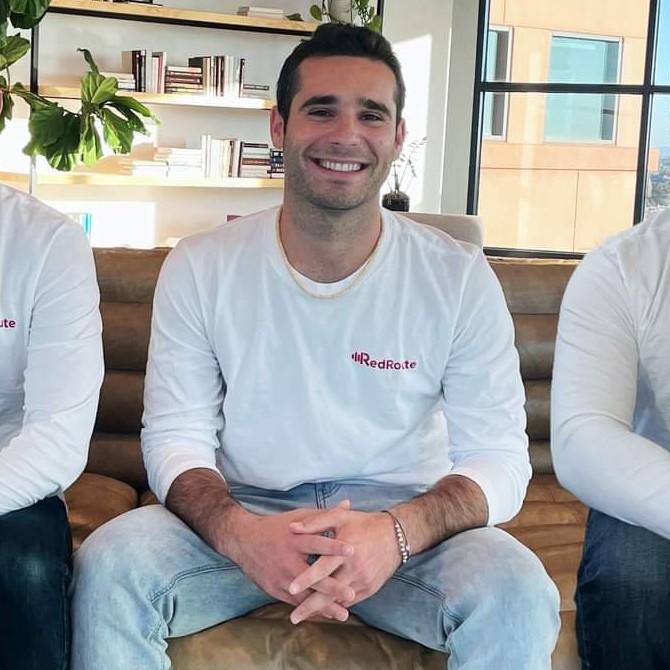
Brian Schiff
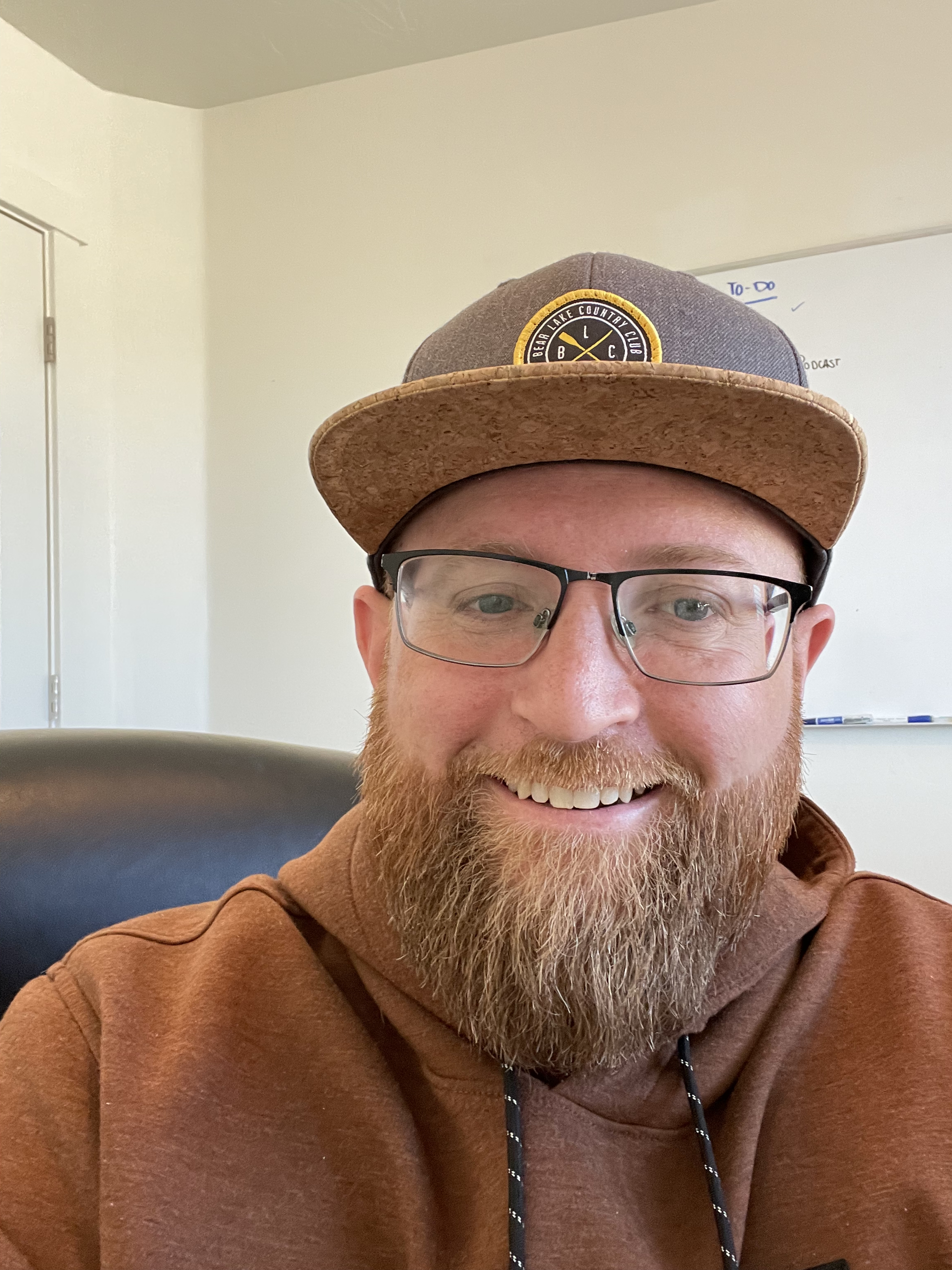
James Gilbert
Today's Guests
